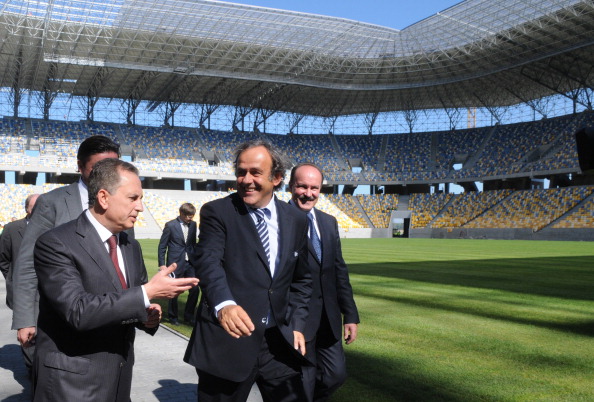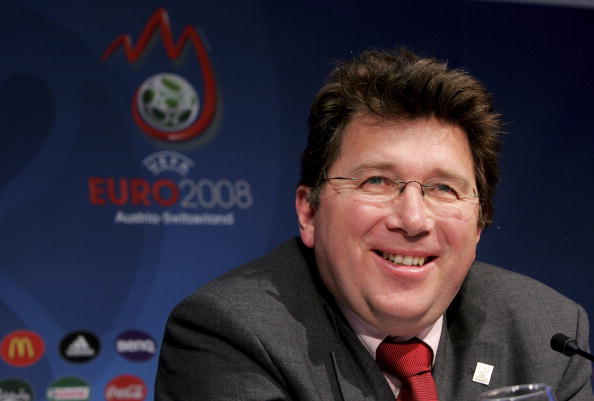By Andrew Warshaw
November 6 – Martin Kallen (pictured) is not a household name when it comes to the big personalities at football’s governing authorities, but, in seven months’ time, he will be under the spotlight like never before.
Kallen is tournament director of Euro 2012 and will present the latest update on his preparations at the IFA conference in Zurich on Tuesday morning (November 8).
Critical reports have come thick and fast since the tournament was awarded to Poland and Ukraine: too risky a choice; insufficient infrastructure; major transport problems in Ukraine; the prospect of hooliganism in Poland.
There have even been suggestions that UEFA would take the tournament – or at least part of it – away from Ukraine unless work was speeded up.
Kallen has seen it all before and takes a calm, realistic approach to the challenges that still lie ahead, challenges that are more complex given the geography involved.
On an organised tour of all eight Euro 2012 venues earlier this year, attended by insideworldfootball, it was clear some of Ukraine’s four venues – Kharkiv, Donetsk, Lviv and the capital, Kiev – were behind schedule, with a couple of stadia only half-completed.
But things have improved and Kallen is optimistic.
“They are making great progress, you can see the changes month by month,” he said.
Aesthetically, no other venue in Ukraine or Poland will come close to Lviv, a stunning city close to the Polish border with more than 90 UNESCO heritage-listed buildings.
Doubts about whether the new stadium there will be ready on time are receding and plans are still on course for a friendly on November 15, against Austria.
Ukraine’s Euro 2012 Minister, Borys Kolesnikov, is confident of his country’s ability to stage the event.
“A country with a planned post-Soviet economy and corresponding infrastructure will always arouse a lack of confidence,” he said.
“But, in the past year, we have achieved significant progress in preparations for the Championship and I think this lack of confidence has gone now.
“We have come through a very significant period, particularly in terms of infrastructure – we leapt across a huge gap.”

UEFA President Michel Platini (pictured, above centre, with Kolesnikov, left) has been at pains to convince a sceptical public that selecting Poland and Ukraine was not a gigantic mistake.
While a minority in both countries are uncomfortable about spending huge amounts of money to host the finals, there is a mood of growing confidence surrounding the first major football championship to be held in Eastern Europe.
Ukraine’s organisers have been bending over backwards to accentuate the positive, while the Polish Government has announced new laws to tackle football violence, similar to legislation brought in by Germany for the 2006 World Cup.
“They know they have a problem,” she Kallen.
“They have a huge image problem – there are always hooligans around every match day in the league – but the Government is making the right steps for the future.”
Ticket sales have exceeded expectations and Kallen is cautiously optimistic the event will be a success.
“We have seen significant progress in the past two to three months, which hadn’t been the case before,” he said.
Contact the writer of this article at zib.l1743666473labto1743666473ofdlr1743666473owedi1743666473sni@w1743666473ahsra1743666473w.wer1743666473dna1743666473
